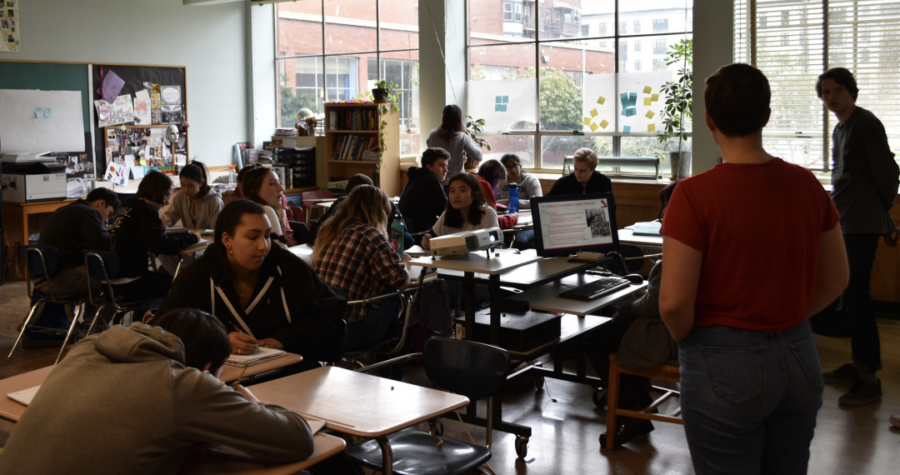Lincoln class tackles racial history, culture
Jessica Mallare-Best teaches her fourth-period Hip-Hop Cultural Exploration class. This class, along with Critical Race Studies 1, makes up the first year of Mallare-Best’s self-created Critical Race Curriculum. Students begin to lead discussions in the classroom as seen above.
For the past three years, Lincoln teacher Jessica Mallare-Best has taught a curriculum focused on helping students explore their racial identities tackling the difficult conversations that surround race.
Critical Race Studies, a two-year course, helps students analyze different aspects of institutionalized racism and oppression. To provide a full year of learning, Critical Race 1 is paired with a second-semester class focused on exploring the historical and cultural impact of hip hop. A full-year 3-4 class is offered to juniors and seniors.
Recently, second-year critical race students presented teach-ins about the death of Trayvon Martin. They also presented “Race Talks” in March to the Lincoln staff.
“We’re really learning how to engage with each other, how to love each other, and how to be better as a community,” said Mallare-Best.
Mallare-Best, who is teaching her third year at Lincoln, created the critical race curriculum six years ago.
“It’s really just a framework foundational understanding that racism is real, that these institutions have been created to help racism thrive and function, to get comfortable with vernacular and terminology around white supremacy and what racism actually is,” said Mallare-Best.
Students from the class praised Mallare-Best’s curriculum.
“I have formed a really incredible community with the other people in [Critical Race Studies] so I hope to continue bonding with them,” said junior Emily Cigarroa, a second-year critical race student. “Ultimately, I hope to become more confident in actively working against and calling out racism when I see it in my life.”
According to the Lincoln course guide, Critical Race Studies helps students focus on ways to understand their own racial history, culture, and identity in order to develop their sense of self.
“We start foundationally getting used to having conversations about race and talking about how it’s impacted us,” said Mallare-Best.

